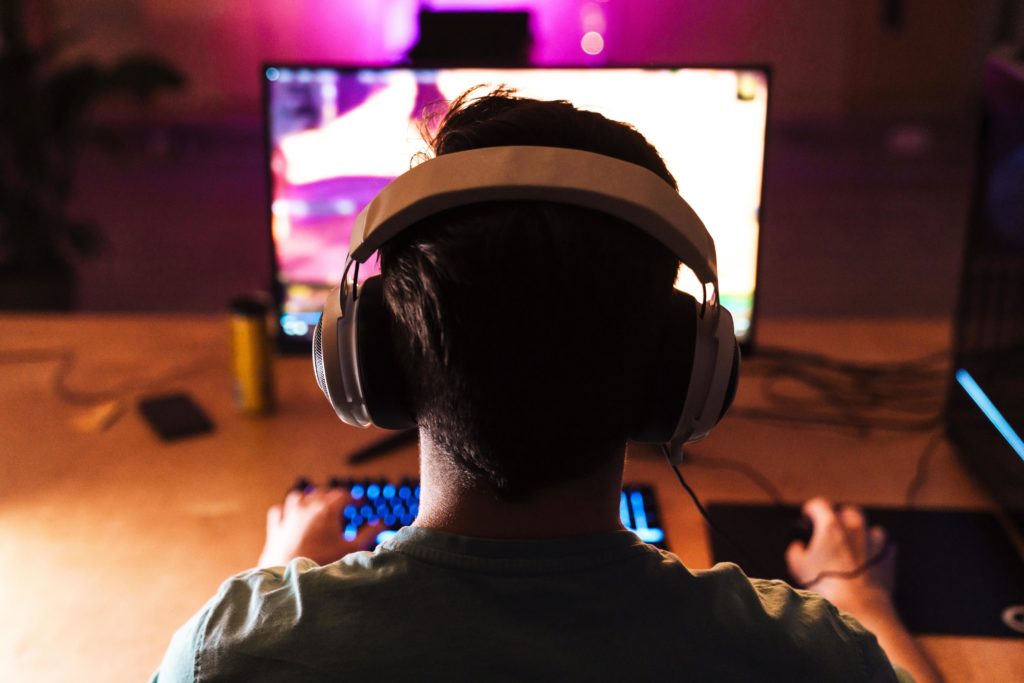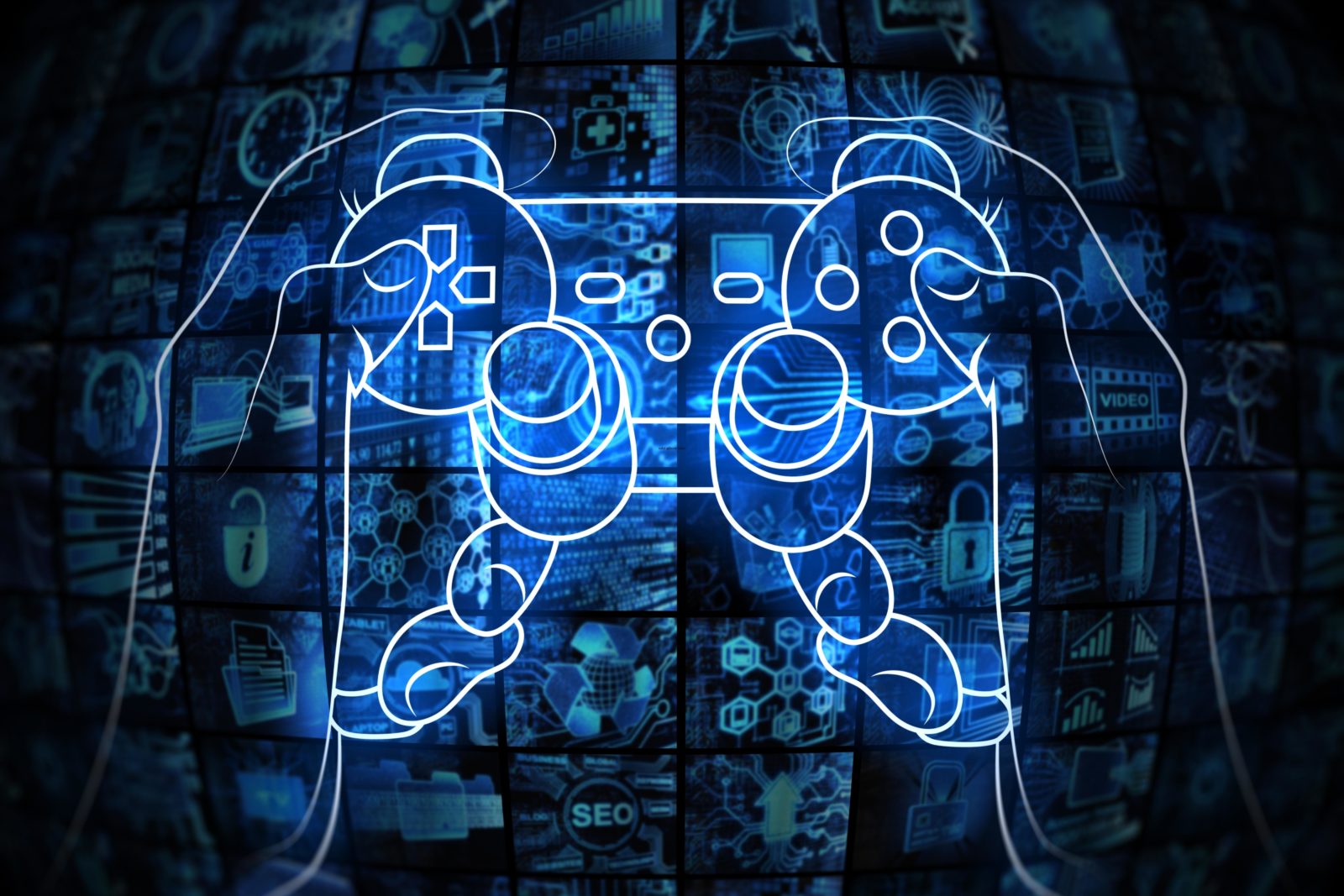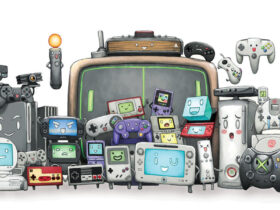
Are you one of the millions of people who love to play video games online? If so, you need to be aware of the online gaming security risks and take tips to protect yourself.
Whether you play online games or just use your gaming console to relax after a long day, it’s important to be aware of the risks out there and know how to protect yourself.
This article discusses eight gaming security tips to protect yourself from hackers and keep your account safe.
Gaming Security Tips

Gaming security refers to the technology and processes used to protect video game consoles, software, players, and other aspects of the gaming industry from theft, piracy, and illegal activity.
Gaming security is a critical part of the industry, as it helps to protect both companies and players from criminal activity. In recent years, there has been an increasing focus on gaming security, as the industry has become increasingly globalized and interconnected.
Millions of people love to play video games online. Whether you’re playing an MMORPG like World of Warcraft or a first-person shooter like Call of Duty, there is always a risk of cyberbullying and hacking. The following online gaming security tips can help you save yourself from hackers.
Use a strong password
Your password is the first line of defense against hackers, so make sure it’s a strong one. Use a mix of upper and lowercase letters, numbers, and symbols.
Avoid using easily guessed words like your name or birthdate. And never share your password with anyone, not even a friend or family member.
Use parental controls

If you have young children who play video games, be sure to set up parental controls on your gaming console. This will help to keep them safe from inappropriate content and online predators.
You can usually find the parental controls in the settings menu of your console.
- Keep your personal information private
- When you’re creating a gaming profile, be careful not to share too much personal information.
- Don’t use your real name, address, or phone number. And avoid using any photos that could be used to identify you.
- Some games require you to verify your age or email address, but you can usually use a pseudonym for this as well.
Be careful what you download
There are a lot of free online games out there, but be careful what you download. Some free games may come with malware or viruses that can harm your computer or steal your personal information.
Only download games from reputable sites and be sure to scan them with your antivirus software before you install them.
Don’t click on links from strangers
Hackers will sometimes send out phishing emails or messages that contain malicious links. If you click on these links, you could end up downloading malware or giving hackers access to your account.
Be careful about what links you click on, even if they appear to come from a friend or game company.
If you’re not sure whether a link is safe, don’t click on it. You can also hover over the link to see where it’s going to take you before you click.
Beware of cheat codes
There are a lot of websites that claim to have cheat codes for popular games. But beware, as some of these websites may contain malware or viruses.
Only download cheat codes from reputable sites and be sure to scan them with your antivirus software before you use them.
If you see something suspicious going on in a game or receive a suspicious message, report it to the game company or website immediately. By doing so, you can help to prevent other people from becoming victims of cybercrime.
Keep your personal information private
Hackers can sometimes get access to your account if you share too much personal information online.
Be careful about what you post on social media or other websites. Don’t include things like your address, phone number, or credit card information.
Use two-factor authentication
Two-factor authentication is an extra layer of security that can help to protect your account. With this enabled, you’ll need to enter a code from your phone or email in addition to your password when you log in.
This makes it more difficult for hackers to gain access to your account, even if they have your password.
Install an Antivirus & Keep It Updated
An antivirus program can help to protect your computer from malware and viruses. Be sure to install an antivirus program and keep it up-to-date.
There are a lot of different antivirus programs out there, so you’ll need to decide which one is right for you. Some popular options include Norton, McAfee, and Bitdefender.
By following these online gaming security tips, you can help keep your account safe and avoid becoming a victim of hacking.
More: What is Private Cloud Security? [Drawbacks & Benefits]
Why Are Video Games Hacked?
There are a number of reasons why someone might hack a video game. Some hackers do it for fun or to show off their skills. Others do it to cause chaos or disrupt the game for other players.
Some hackers also do it to steal personal information, such as credit card numbers or login credentials. In some cases, hackers have even used video games to spread malware or viruses.
No matter what the motivation is, hacking can be a serious problem for game companies and players alike. It’s important to be aware of the risks and take steps to protect yourself.
What Are The Risks Of Hacking?
There are a number of risks associated with hacking. For game companies, hacking can lead to revenue loss and damage to their reputation.
Hacked games can also be used to spread malware or viruses. This can cause serious problems for players, including data loss and identity theft.
In some cases, hackers have even taken over player accounts and used them to commit fraud or other crimes.
Frequently Asked Questions (FAQs)
Let’s take a look at some frequently asked questions related to online gaming security tips.
I think my account has been hacked. What should I do?
If you think your account has been hacked, the first thing you should do is change your password and enable two-factor authentication, if it’s available. You should also run a virus scan on your computer and be on the lookout for any suspicious activity.
I received a suspicious message from another player. What should I do?
If you receive a suspicious message, don’t click on any links or attachments. You should also report the message to the game company or website. By doing so, you can help to prevent others from becoming victims of cybercrime.
I’m being harassed by another player. What can I do?
If you’re being harassed by another player, you can report the incident to the game company or website.











